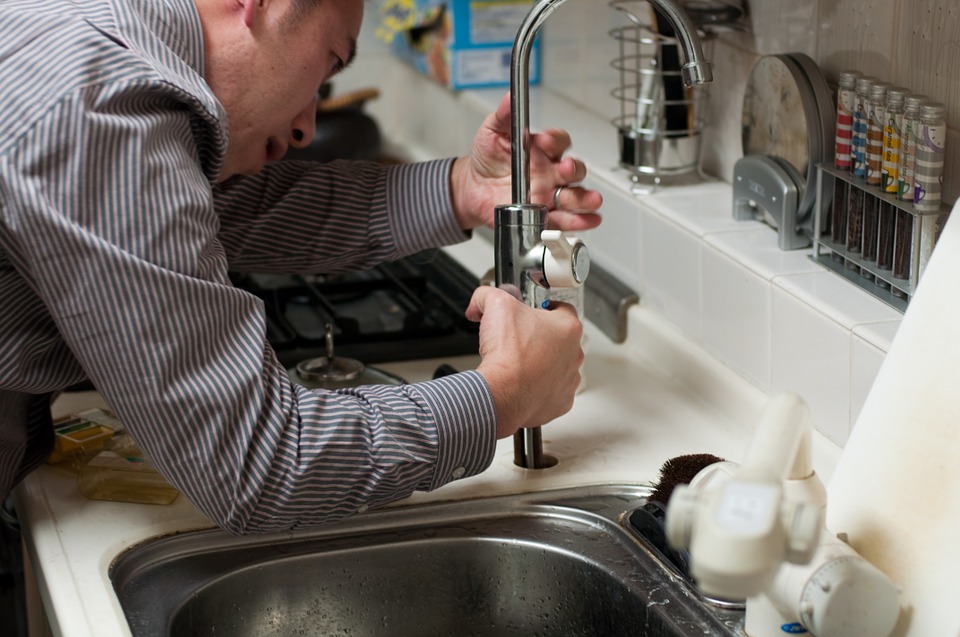Many people tend to overlook their home's plumbing unless there's a significant problem. However, even little trickles can lead to big problem, especially if they're in the basement if left unchecked. Everyday plumbing issues can range from leaky pipes to rusty water spilling from the water heater to a backed-up toilet. If you don't get these issues fixed, water can seep into the floor, drywall, and ceiling. A minor setback can thus lead to long-term damage to your property that might be difficult to repair because of costs.
Water damage can weaken you're home's foundation and lead to mold growth. Your house can become unhealthy and unsafe to live in in the long run. Therefore, it is better to be ready to tackle such emergencies before things get out of hand. For this reason, listed below are a few tips that will help you recover from a plumbing emergency as quickly and safely as possible. Let's begin, shall we?
Turn off the water supply
When a plumbing mishap occurs, your first step should always be to locate the main valves for your house's water supply and turn them off. A simple remedy for bathrooms and the kitchen is to turn off the valve leading to these specific areas. Ensure everyone in your home knows where the main water valve is so that they can turn it off in an urgent situation.
Call in the experts
Suppose the plumbing emergency is severe, such as a burst pipe or a leak that a DIY technique can't stop. In that case, you're better of calling in an expert to take a look at the situation. And you'd want to make the call as soon as possible to mitigate the damage and prevent excess water wastage.
In fact, if you live in a city/state where storms are frequent, having a few contacts saved in your phone or web browser can be extremely helpful. States like Florida are prone to more storms than usual because of the region's climate. These natural calamities can damage a home's exterior plumbing system and cause additional water damage. So, let's say you live in Orange County. It's advisable to keep contact details for water damage restoration in Orlando saved in the case of a major emergency. This way, you can limit substantial permanent damage to your property by making a call on time and avoid unnecessary repair costs.
Drain and remove water
Clogged drains can cause water to flow back into your plumbing system and wreak havoc. If there's water inside your home caused by back-flow, open any drains to let it flow through. Mix a quick solution of baking soda and vinegar and pour it down into any blocked drain. After a few minutes, run it down with warm water. You can repeat this process till your drains are clean, and there's no more back-flow.
To avoid further damage, ensure the floor is completely dry. If water has back-flowed into your basement, use a utility pump to flush it out.
Fix minor leaks
If you spot any minor leaks that are easy to control, you can stop the water from dripping by fixing them yourself. Use plumber's tape to prevent the water from trickling down. You can also use rags and towels around pipes and place buckets if need be. Even a tiny stream of water continuously dripping down can cause damage to your floor if it is not dealt with in time.
Turn off all electrical appliances
To avoid further mishaps, such as electrocution, unplug all electrical appliances near a leaking pipe or faucet or clogged drain. In fact, it would be better to move them someplace else inside the house till you fix the leak. This way, you'll prevent them from malfunctioning, and you wouldn't have to worry about replacement costs in addition to plumbing repairs. And before you plug them back in, ensure all the water has dried up. The last thing you'd want is a short-circuit.
Track gas leakages
If you think that plumbing issues are related to water and water damage only, you're wrong! Gas leaks are also a significant plumbing concern, and it's best to keep track of any leaking gas pipes around your house as well. Gas leaks can be potentially fatal if the concentration is high and in the unfortunate event of a blast.
If there is a strong odor in the house, you know there's a problem. Your first course of action should be to get everyone outside of the house. Turn off the gas valve and wait for an expert to come and fix the problem. If it's possible and safe, turn off the power supply as well to prevent electrical appliances from sparking. Once you know the place is safe, move back in.
Keep the following
Having a few handy-dandy tools and equipment can simplify some DIY plumbing jobs if the problem is not too complicated. These include:
- A bucket as a tool caddy and for catching spilled water under a leaking pipe or pipe or valve that you're working on
- Cup plungers to de-clog the sink, toilet, drains, and gutters
- An old toothbrush for scrubbing off build-up and debris from inside drain pipes and difficult-to-reach areas
- Allen keys and wrenches for tightening, unscrewing, and repairing valves and faucets
- Duct/sealing tape to hold and seal pipes temporarily
- A drain snake to clean obstructions and hair build-up in drains
- Eye and hand protection gear to prevent injuries and infections while you work
Conclusion
A plumbing disaster can happen when you least expect it. So it's crucial to be ready for such situations beforehand. Prepare ahead of time by conducting research and keeping your emergency plumber's contact information ready so that you can call them immediately. Also, ensure to close valves to prevent water wastage, de-clog blocked drains, and remove water from inside your home. Also, unplug electrical appliances and check for gas leaks to ensure your safety.
